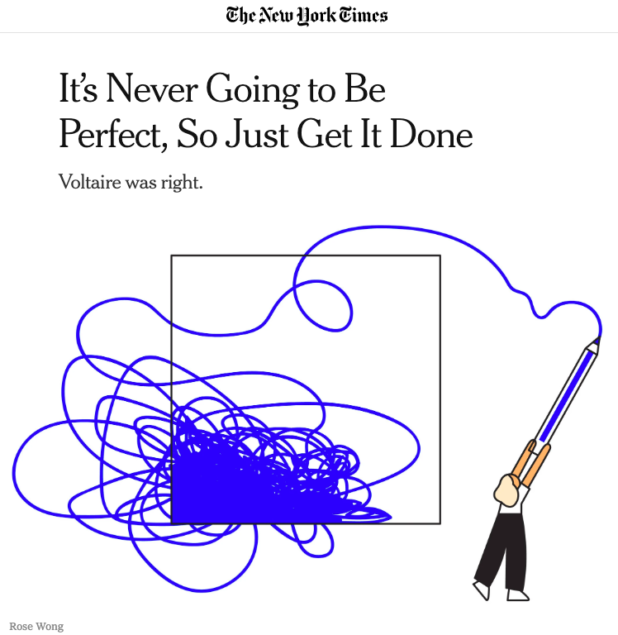Andrew Anglin
Daily Stormer
July 10, 2019
Just when you think you’ve reached the bottom of Jewish depravity, you open up a New York Times news alert and find a whole new level of weasel-fuckery.
Before we get into this latest act of sickening Jewish behavior I have discovered, I need to note that I am a better writer than anyone working at the New York Times, and probably a better writer than any journalist alive, excluding Glenn Greenwald, Seymour Hersh, Robert Fisk, Patrick Cockburn and maybe MILO’s combined team of ghostwriters (who are no longer active).
I don’t just mean “because I tell the truth” – I mean I am literally better at writing than these weird people by a huge margin. Even when you consider that I put out 15 times the word count of the average professional journalist and do not have an editor, my end product very simply has better prose and narrative and sentence structure than any of these disgusting people, who are not only evil, but entirely talentless.
I am not Hunter S. Thompson or Tom Wolfe, and never will be, but I will unquestionably be the greatest living journalist in a few years, because most of my competitors are going to die of old age and Glenn Greenwald is going to die from homosexuality-related disease.
Given this virtually uncontested position I hold, I was quite interested to read what advice the very poorly written and boring New York Times was giving to writers.
In a piece entitled “It’s Never Going to Be Perfect, So Just Get It Done,” columnist Tim Herrera – who is not only a bad writer, but also very ugly – appears to be giving bad writing advice on purpose.
Tim Herrera
Tim starts out by describing his own struggles with trying to put out the “perfect” piece, and obsessively reworking his material.
I’d come back to my meager Google Doc every few days, reworking the same few sentences, each time thinking I was finally ready to finish. But I never really made any progress — I wanted it to be just right, and I fell into an editing and re-editing spiral. But, of course, just right is a mirage that never materializes, and that mirage prevented me from … actually finishing this newsletter.
Is the prose here any better for all of that incremental faux-progress? Probably not! I wanted it to be, but I know that if I had just gotten it done when I wanted to, instead of examining every word with a microscope, I could’ve saved myself a lot of unnecessary stress (and actually hit my self-imposed deadline). And that needless obsession with perfection is kind of the whole deal: By agonizing over tiny improvements in our work — if they even are improvements — we prevent ourselves from achieving the actual goal of, you know, doing the work.
“At some point, we must remind ourselves, any changes we make to a creation no longer make it better but just different (and sometimes worse),” Dr. Alex Lickerman wrote in Psychology Today on the topic of just getting things done. “Recognizing that inflection point — the point at which our continuing to rework our work reaches a law of diminishing returns — is one of the hardest skills to learn, but also one of the most necessary.”
I don’t have this issue, as I write thousands of words per day and rarely – if ever – even bother to proofread, let alone rework my prose. On some pieces that I think are especially important, I do proofread and sometimes switch things up here and there, but it’s not something I’ve ever stressed over.
However, I am aware that many people do have this issue – particularly those on the low-end of the talent spectrum – and I do not take any particular issue with telling people to not compulsively try to rework sentences. That seems to me something which should be self-explanatory, but it isn’t wrong.
He inanely rambles for a bit in order to drive that point home, citing some nonsense that no one cares about.
But later, it gets very stupid – diabolically stupid.
First, embrace the magic of micro-progress: Rather than looking at tasks, projects or decisions as items that must be completed, slice them into the smallest possible units of progress, then knock them out one at a time. This strategy relieves the pressure of thinking we need a perfect plan before we begin something — after all, if your first step is “open a new Google Doc for this week’s newsletter” and not “pick a perfect topic, write a perfect lede and have a perfect organization,” you either have achieved that micro-goal or you haven’t. There’s no gray area.
Second, reframe the way you think about the things you have to do. Focus far less on the end result, and far more on the process — this allows you to be aware of the progress you’re making, rather than obsessing over the end result of that progress. As the writer James Clear put it, “when you think about your goals, don’t just consider the outcome you want. Focus on the repetitions that lead to that place. Focus on the piles of work that come before the success. Focus on the hundreds of ceramic pots that come before the masterpiece.”
In the end, just do the work. It won’t be perfect, but you’ll be far happier, and it’ll be done. And done is better than perfect ¯\_(ツ)_/
This is absolutely horrible advice.
The single most important aspect of writing anything is to begin with a clear idea of what it is that you want to say, and work toward saying it. There is no possible worse strategy for writing anything than to begin with “I have no idea what I want to say, but I’m just going to start writing anyway and hope something pops into my head while I’m working.”
Just imagine applying this principle to anything else in the universe:
- “I don’t know what kind of building I want to build, so I’ll just go ahead and start laying the foundation and figure it out as I go.”
- “I don’t know what I want to cook for dinner, so I’ll just start throwing random food items into a pot.”
- “I don’t know what I need to do today, so I’ll just get in my car and drive around and see where I end up.”
Writing should be and must be deliberate.
And this principle applies to everything in life.
You are never going to accomplish anything unless you know what it is you are trying to accomplish.
This is my counter advice (truthful, real advice for writers):
It goes without saying that if you are writing about current events, you should be well-informed on the news. And if you are any kind of writer, you should also be a heavy reader, because all great works of art are derivative on some level and anyone who tells you otherwise is a liar.
The only works of art that were not derivative were those scrawled on the walls of caves.
Works of art that make a point to try to not be derivative are always crap, and are often not even actual art, such as virtually all “abstract art.”
The literary analogue to that would probably be James Joyce, and all of his books – excluding, I guess, Dubliners – should be burned.
If you are well read and otherwise prepared to write, and yet you cannot picture in your head what it is you want to write, you should do something relaxing to clear your head, whether it be exercising, going for a walk, going and sitting in nature, going out for a coffee, going for a bike or motorcycle ride, or doing whatever else it is you do to clear your head until a solid idea comes to you.
If no ideas come to you, then you are in the wrong profession, period.
Yes, you should start writing as soon as you have formed a clear picture of the end product you want to produce, even if you haven’t worked out all the details, and the details will start to fill themselves in as you begin to build. But opening a file and staring at a blank page and forcing yourself to “just do something” is a vile, horrible practice, and I can only imagine that a person who would give this advice is being malicious.
Possibly, Tim Herrera is simply a talentless loser who has no idea what he is doing, but some editor at the New York Times looked at this and said “run it,” and as bad as the New York Times is, I do not believe that their editors can be so clueless as to believe anyone could possibly benefit from this advice.
Probably, the New York Times is attempting to destroy its potential competition by spreading horrible writing advice to young people learning how to write.




